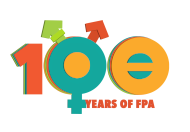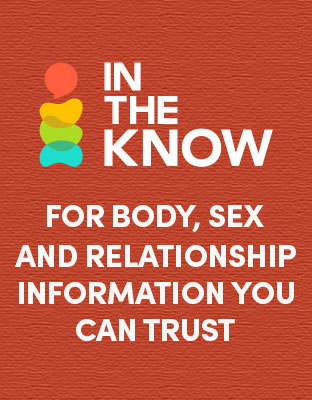HIV
What is HIV?
HIV (Human Immunodeficiency Virus) is a virus that damages the body's immune system making it hard to fight off infections. Over time, if untreated, HIV infection can develop into AIDS (Acquired Immune Deficiency Syndrome) where the immune system is no longer able to fend off infections.
Now that we have effective treatments for HIV infection people should not be at risk of AIDS developing, unless they don't recognise a risk of exposure to HIV infection and don't get tested. Treatments have been developed that stop HIV from damaging the immune system.
Treatments are not able to eradicate the HIV infection so once you start anti-HIV treatment, you must continue to take it for the rest of your life.
How does HIV cause AIDS?
Inside the body are billions of cells with different jobs. The CD4 cells of the immune system are targeted by the HIV infection. CD4 cells help the body stay healthy by fighting off disease. HIV replicates inside CD4 cells, gradually killing them off, so that after a while the body can no longer fight disease. When people with HIV start getting illnesses related to immune deficiency (called opportunistic infections), they have AIDS. Without treatment, people with HIV will eventually get AIDS, though it might take up to 10 or more years. Anti-HIV treatment can stop HIV progressing to AIDS.
How does anti-HIV treatment work?
Anti-HIV treatment (also known as antiretroviral therapy or ART) stops the HIV virus from replicating which leads to a lower viral load. The treatment involves a combination of anti-HIV drugs used together to destroy the virus in the body. These drugs can cause side-effects and they must be taken for the rest of your life. Treatment also lowers the chance that you could pass the HIV infection on to sexual partners.
What is HIV viral load?
Viral load is the measure of how much HIV virus is in your bloodstream. The lower the viral load, the lower the chance HIV disease will progress. Anti-HIV treatment tries to keep the viral load to levels that are so low they can't be measured (undetectable viral load). Having an undetectable viral load doesn't mean you are cured of HIV - it's a good sign that the virus isn't damaging your immune system and that you will have a minimal risk of passing the virus on to others.
Is there a cure for HIV?
Currently, there is no cure, but anti-HIV treatment will help prevent immune damage. Treatment also reduces the risk of passing the virus on to sexual partners.
How is HIV passed on?
HIV is transmitted through penetrative sex (vaginal or anal), blood-to-blood contact or breastfeeding. HIV can be present in four kinds of bodily fluids:
- blood
- semen (cum, including pre-cum)
- vaginal fluid
- breast milk
The most common ways of getting HIV are:
- unprotected anal or vaginal sex (sex without a condom)
- sharing sex toys
- sharing needles, syringes or drug injecting equipment
- non-sterile (unclean) tattooing and body piercing equipment
- blood transfusions in countries where the blood supply is not safe - the blood supply in Australia is safe
Oral sex is classified as a low-risk (but not no-risk) activity for passing on HIV. You can't get HIV by hugging or kissing, by shaking hands, by sharing food or off toilet seats. HIV can be transmitted from mother to child during pregnancy, birth or breastfeeding. Babies can be protected from HIV if their mothers are taking anti-HIV treatment and have an undetectable viral load. It is important that all pregnant women are tested for HIV to reduce the risk of babies becoming infected.
Who should have a HIV test?
Rates of HIV in Australia are relatively low but there are some circumstances that place people at increased risk of infection. If any of these apply to you, you should have a HIV test:
- you have had unprotected sex with a partner whose HIV status is unknown
- you are a man who has unprotected anal sex with other men
- your sexual partner has HIV and does not have an undetectable viral load, and you have had unprotected sex with them
- you have had unprotected sex (vaginal or anal) with a person from a country that has high rates of HIV infection - Africa (particularly sub-Saharan Africa), the Caribbean, Cambodia, Thailand, Burma or Papua New Guinea
- your current sexual partner has recently travelled to a country that has high rates of HIV infection and may have had unprotected sex there
- you have had unprotected sex in Africa, Eastern Europe, South East Asia or Papua New Guinea with a sex worker
- you have ever shared injecting equipment
As part of the NSW Health Campaign to end HIV by 2020 it is recommended that everyone who is sexually active knows their HIV status and is retested if they have a new risk of exposure. Sexually active men who have sex with men are recommended to have a HIV test at least once a year. Once you know your HIV status, your doctor will tell you about how often you should get tested in future.
Where can I get a HIV test?
You can go to a Family Planning NSW clinic, sexual health clinic or a GP to have a HIV test. The health worker will ask you some questions to work out your level of risk of HIV before arranging a blood test. The results usually take a few days to come back. Rapid HIV testing or point-of-care HIV testing is now available in some places in Sydney and around Australia for gay men. A result is available within 30 minutes.
You will still need a follow-up blood test to make sure the result is correct. For more information visit the Ending HIV website: https://endinghiv.org.au/test-often/all-about-testing/.
What if I have a positive HIV test?
HIV is not a death sentence, although it can be a confronting diagnosis. Your doctor will tell you about treatment options, give you some written information, talk to you about safer sex, and help you find somebody to talk to about your feelings and concerns. You may feel shocked and scared by your diagnosis. It's a big thing to take in. Talking to a close friend, parent or counsellor can help. The important thing to remember is that most people with HIV in Australia live long, healthy lives, as long as they take their medication.
Your doctor will arrange a follow-up appointment with you, and may refer you to a specialist or sexual health clinic for counselling and treatment. It is recommended that you start anti-HIV treatment as soon as possible after your diagnosis.
Research studies have also shown that early treatment reduces the risk of damage to your immune system and improves your overall health. You can discuss your options for treatment with the specialist and make an informed decision about if and when you start treatment.
How do I avoid passing on HIV?
Avoiding HIV transmission is everybody's responsibility. You can protect yourself and your partner(s) from HIV infection by using condoms when you have vaginal or anal sex, and by not sharing needles or injecting equipment. Regular testing if you are at risk also helps to reduce passing on HIV.
What is PEP?
PrEP (pre-exposure prophylaxis) is a new method to prevent HIV for people who are HIV negative but are at high risk of getting HIV. PrEP is a daily pill containing two anti-HIV medications which can prevent HIV infection. Since April 2018 PrEP has been subsidised by Medicare for Australian residents. For more information visit the Ending HIV website. emergency departments and some specialist GPs.
If I go to a clinic, is my information kept private?
Yes - information health workers receive from you, or discuss with you, at a sexual health clinic is completely private and confidential and can't be shared with your family, friends or people you know. It is illegal for a health worker to disclose information to another person regarding your HIV testing or results unless there are exceptional circumstances regarding your safety or the safety of others.
HIV is a notifiable disease. This means that laboratory staff are legally required to inform NSW Public Health Units about new cases of infection. This information is confidential and is used for planning of health services in NSW.
For more information
Family Planning NSW Talkline - www.fpnsw.org.au/talkline or 1300 658 886
National Relay Service (for deaf people) - 13 36 77
TIS National's interpreting service - 131 450
Visit your nearest Family Planning NSW clinic - www.fpnsw.org.au/clinics
Ending HIV - www.endinghiv.org.au
ACON - www.acon.org.au/hiv/HIV-Basics




